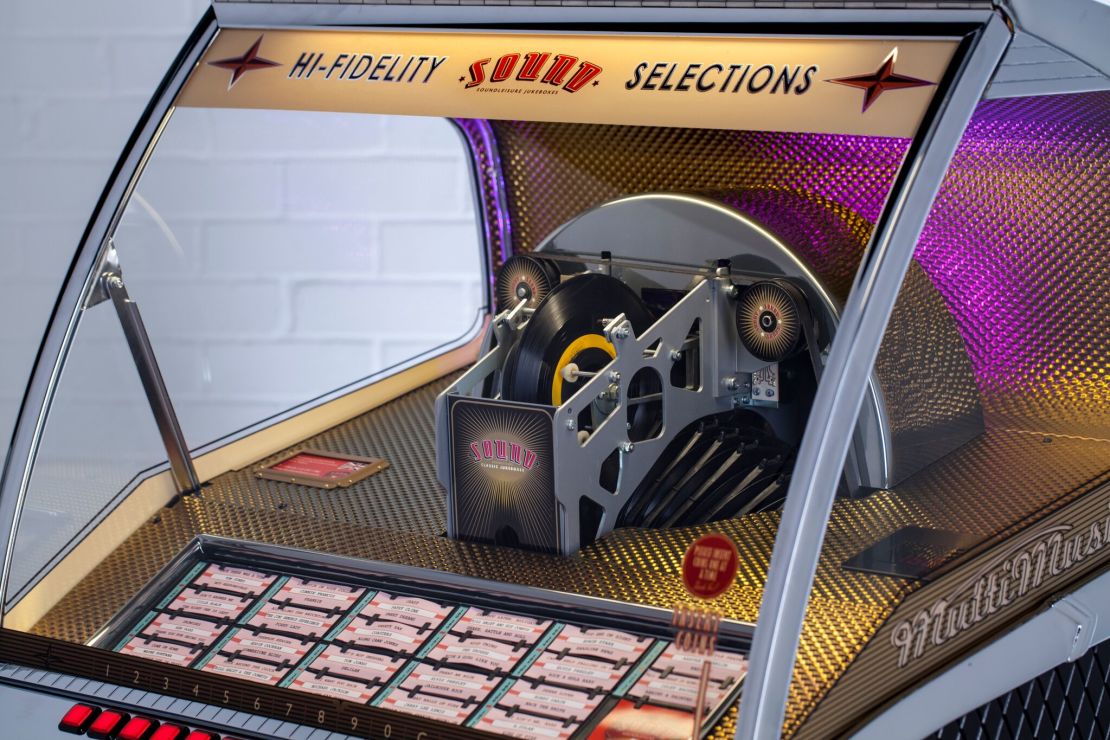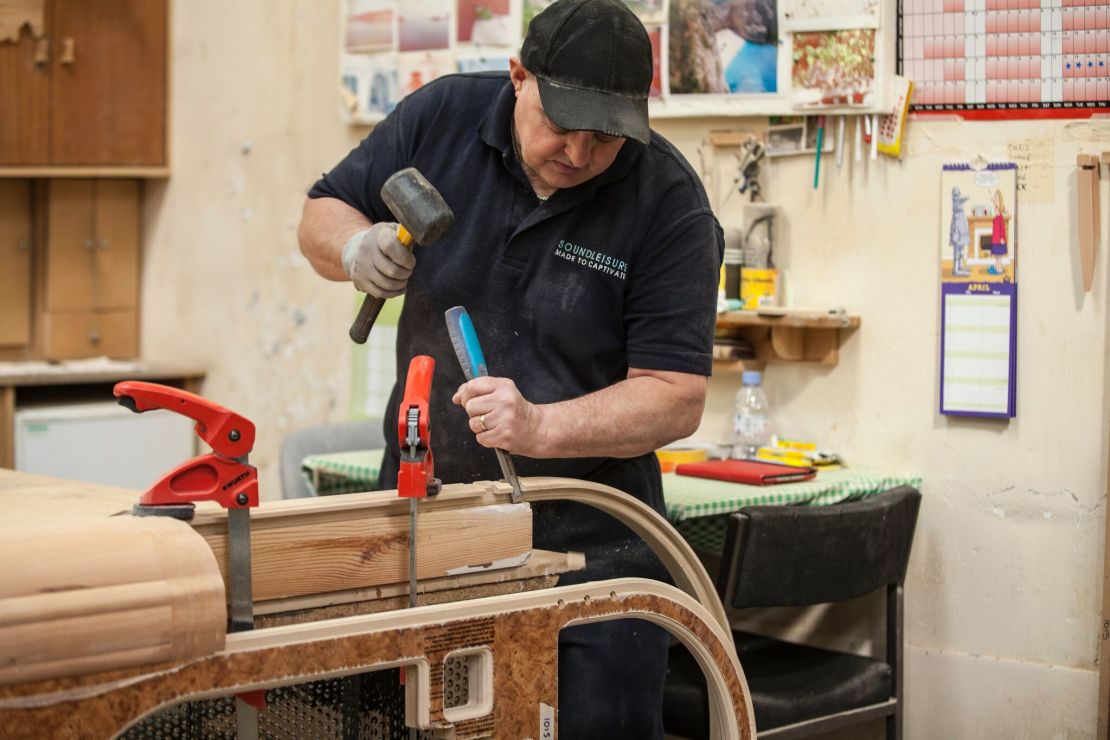“There is the sense for some that it’s rather like having a horse and cart when you could have a Ferrari,” says Chris Black, punching a few more numbers into one of his jukeboxes.
“But unlike a boring box in the corner of a room, one of these just draws people in. They want to have their picture taken with it. It’s a happy-go-lucky product.”
Black is the managing director of Sound Leisure, one of the last two makers of hand-built jukeboxes in the world.
Unexpectedly, the company, established by his father in 1978, is based in Leeds in the north of England, rather than in the United States. Perhaps even more unexpectedly, business is booming.
“While the pub trade for jukeboxes has more or less gone, more and more people want one in their home, like they do a real coal fire or an AGA (oven). It’s become a lifestyle product,” Black says.
Retro appeal

Sound Leisure sales have doubled in the last five years, and the company has taken unprecedented advanced orders for its latest model: the Vinyl Rocket Jukebox.
“It is what a jukebox should be because it’s what a jukebox was in its original form,” he says. “It has a theater to it: the loading of the record, the positioning of the stylus before the music comes on. It taps more deeply into that American era from which we’ve taken so many ideas of what it is to be stylish.”
It’s certainly a departure for Sound Leisure too. To date, its models have been CD-based, allowing each jukebox to contain some 2000 tracks, against the 70 records, including A and B-sides, that the vinyl-playing model will house.
That’s not all that distinguishes them from the classic designs of ’50s Americana that have defined the form. If the original used bulbs to create the rotating round of fluorescent lights, Sound Leisure’s use LEDs. The liquid inside the bubble tubes, long ago discovered to be carcinogenic, has been replaced.
And the plastics now used are, as Black puts it, of “riot-shield strength, so if you have a particularly rowdy party, your jukebox will survive.”
To give the units greater practicality in the 21st century, each has Bluetooth connectivity, shuffle facility and remote control, too.
But otherwise they exhibit the same looks and level of craftsmanship – in cabinetry as much as in electronics – as the famed likes of Wurlitzer once made. (Indeed, each Sound Leisure jukebox takes some 70 hours to build.)
A new classic
Black attributes the demise of the industry less to the advance of competing audio technology than to its relentless cost-cutting. In contrast, Sound Leisure’s all-vinyl jukebox – with every part designed and made in house – will not leave you with much change out of £8,000 ($9,990), with custom jukeboxes costing more still.
Putting another dime in the jukebox, baby, may take some planning.
“Certainly there are jukebox purists who say ‘Why buy a new one when you could buy an original?’” concedes Black.
“But a new jukebox is more like a replica classic car. It’s all the style without the maintenance. You don’t have to repair it every time you turn it on. Besides, purists are less and less sniffy because they appreciate that we’re adding to jukebox history. The jukeboxes we make will be around in another 50 years. They’ll be handed down through generations much as the old ones have been.”

Black is confident that there will still be a demand for jukeboxes in decades to come too.
“Often teenagers are taken by the sound of a jukebox when they hear it,” says Black. “It’s a distinctive sound, unlike the very crisp one of modern hi-fi equipment. It’s more bass-y. There’s more boom to it. We could make a jukebox that sounds crisp, but that would be out of character. We put a lot of effort into keeping that bass and boom.”
Of course, he admits, in the Spotify age, not everyone gets it. Although Sound Leisure sells its jukeboxes globally, some markets have remained resistant.
“We wanted to sell in Russia, for example, but they’ve been so cut off from American culture for so long that they looked at it and it was like, ‘What is this? What does it do?’” Black laughs.
And, most surprising of all, America, the jukebox’s spiritual home, has not been receptive.
“I think it’s because Americans lived through America of the 1950s, so everything that we consider to be appealing about that time and place just seems part of the past to them,” he says.
But perhaps Sound Leisure can win them ‘round with a song yet.









